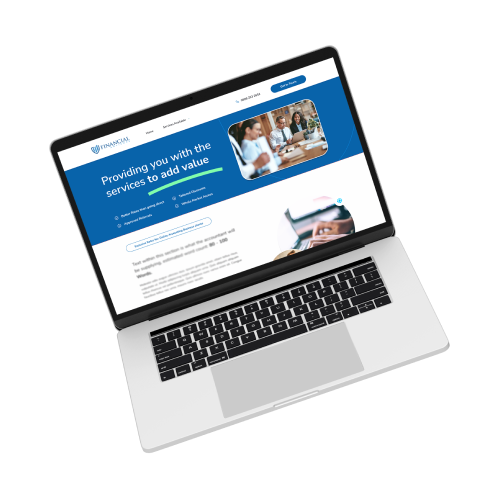
Date: 07/11/2024 | Written By: In-house accounting and finance function
Budgeting isn’t always straightforward (frankly, it can be a total pain!), and it can be easy to fall into the same traps year after year.
With 2025 being just around the corner, there’s no better time than now to start thinking about your budget for next year.
Getting your budget right is essential for the success of your business – it helps you plan for growth, manage your cash flow, and steer clear of any financial surprises.
In our latest blog, we look at why budgeting is so important for your business, and how you can avoid the common pitfalls that trip up even the most seasoned business owners!
Why budgeting is essential.
A well thought out budget is like a financial roadmap for your business. It shows you where you’re going, highlights potential bumps in the road, and helps you allocate your resources effectively. Here’s why budgeting should be at the top of your to-do list for 2025:
Growth planning: A budget helps you to identify potential opportunities for growth by allocating resources where they’re needed most.
Cash flow management: Accurate budgeting ensures you have enough cash to cover expenses and avoid running into liquidity issues.
Financial stability: By planning ahead, you can avoid unexpected financial shortfalls that might otherwise catch you off guard.
Common budgeting pitfalls (and how to avoid them!)
When it comes to budgeting, there are a few common mistakes that can throw your business off track.
Overestimating sales
It’s easy to get excited about potential growth, but being overly optimistic about your sales projections can lead to serious cash flow issues. If you expect more revenue than what realistically comes in, you may overspend and end up in the red.
How to avoid it? Base your sales projections on historical data, not just on hopes for future success. Consider any external factors that might influence demand (such as market conditions or new competitors).
Underestimating expenses
It’s not just revenue that can be miscalculated – expenses often get underestimated too! Whether it’s due to inflation, rising supply chain costs, or new people joining your team, underestimating costs can leave your budget out of balance.
How to avoid it? Be thorough when mapping out your expenses. Account for any potential increases in things like your supply costs, wages, or utilities. And don’t forget to include hidden costs, like marketing or staff training!
Not having contingency plans
Unexpected costs are inevitable. Whether it’s a sudden equipment breakdown, increased supplier costs, or an economic downturn, failing to build in a budget buffer can cause major stress.
How to avoid it? Always include a contingency fund in your budget to cover any unforeseen expenses. This will give you the flexibility to handle unforeseen challenges, peace of mind and keep your finances stable, even when things don’t quite go to plan.
How to get started with business budgeting.
Budgeting for your business might feel overwhelming, but don’t worry! You just need to break the process down into manageable steps.
Ready to build your budget for 2025?
If budgeting feels like a daunting task, or if you’re not confident in your financial forecasts, seeking expert help can make the world of difference. A finance professional can provide valuable insights, help you refine your projections, and ensure your budget aligns with your business goals.
YRH Finance Team specialise in supporting businesses with tailored, part-time financial expertise, so you get all the guidance you need without the commitment of a full-time hire.
So if you’re looking for expert guidance or a fresh perspective, YRH Finance Team can provide the support you need. Their finance professionals are here to help you create a budget that’s accurate, flexible, and tailored to your business’s needs.
Find out more here.
Keep up to date with the latest news, updates, expert opinions and events specifically for Advisers.
Interested to understand how Practice Portfolio could benefit you and your clients?
